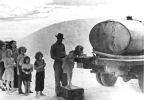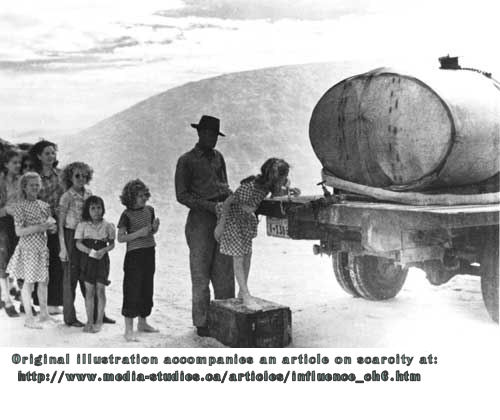The Lesson That Pearl Harbor Should Teach Us----Seven Decades After The Japanese Attack And We Still Don't Get It
 Once again, we come upon another poignant anniversary. December 7, the day that the Japanese Imperial Navy attacked Pearl Harbor some 70 years ago. Like 9/11, it is traditionallly marked as a significant historical event. But I believe that it is significant for entirely different reasons than what we have been given. On December 7, 1941, the Japanese government undertook a desperate gamble. The questions we need to ask are several. What made them desperate? What would make nations desperate today? What do desperate nations and desperate people do when they reach desperation? And what do we do when these desperate nations and people are armed with nuclear weapons?
Once again, we come upon another poignant anniversary. December 7, the day that the Japanese Imperial Navy attacked Pearl Harbor some 70 years ago. Like 9/11, it is traditionallly marked as a significant historical event. But I believe that it is significant for entirely different reasons than what we have been given. On December 7, 1941, the Japanese government undertook a desperate gamble. The questions we need to ask are several. What made them desperate? What would make nations desperate today? What do desperate nations and desperate people do when they reach desperation? And what do we do when these desperate nations and people are armed with nuclear weapons?

Whose lesson will YOU follow?
We are often told that if we don’t learn from history, we are doomed to repeat it. The problem is, however, that history often teaches lessons quite different from those that the puppeteers of patriotic propaganda would have us believe. Such is the case whenever December 7th approaches. That is the day when my life experience collides with the official narrative. Let me tell you why.
Fiction That Told The Truth
Nevil Shute's book On The Beach was mandatory reading for my generation. It was read by school-children across the province (B.C.). Subsequently, of course, we were subjected to a raft of movies about nuclear war and what it would mean. Two stand out for me.
"Testament" with Jane Alexander in a lead role, was unique in that it did not depict a blast or even a hint of what lead up to the war. Instead, it showed how a typical middle class suburb would try to cope with nuclear fallout, and how inexorably, people would die off to the point that the community would collapse. Like "On the Beach", the audience was left with an over-powering sense of futility, made more powerful by the absence of infrastructure damage, firestorms and bodies trapped in rubble.
We can't hide from scarcity
These movies actually simulate our predicament too. We face a threat----scarcity----which will breech every wall, border or nuclear umbrella. The virtue of the analyses like those of Jack Alpert and Chris Clugston is that they remind us that we are all tied into a global resource base. The depletion of the minerals and metals and fuels (NNRs) which Chris has inventoried will affect everyone on this planet as surely as the radiation did in Nevil Shute's book (and movie) and in "Testament". We can hide behind our gated communities, or behind militarized borders, but scarcity will come calling and will not be kept out. Not even a trillion dollar-a-year military budget can save us.
This in fact, was the case with the walled cities, fortresses and castles that were beseiged by Alexander, by Caesar, by the Crusaders (and their adversaries) by the Mongols and countless other intruders throughout history. Hiding behind walls gives you respite from privation and death, but not permanent sanctuary. Typically, the besieged end up eating each other. Don't get me wrong. I am an immigration-reductionist. I believe that unfettered mass migration will accelerate our collective demise. (cf. Bill Rees' "Globalization, Migration and Trade"). But strong borders in the context of remorseless global scarcity will be like speed bumps. I want speed bumps in my neighbourhood to discourage commuter traffic----but they will not address the problem of overwhelming traffic volume in the city. We can act locally---as is our responsibility----but Chris Clugston and Jack Alpert remind us that the problem we face is beyond local solutions. Its global or bust. And that was the case during the Cold War. The effects of a nuclear exchange could not have been quarantined to one region, or avoided by finding a secluded haven. My mother understood this.
The trauma of growing up under a nuclear shadow
I remember, as a boy, begging my parents to build a bomb shelter. I firmly believed that Russian bombers would one day appear over the horizon. After all, the air raid siren just two blocks away would sound off at random just to keep us on our toes. On one occasion, I was walking home from school with a group of other 6 year old kids---including my classmate Daphne---- when it sounded off as we were walking by it. We sprinted home in panic and Daphne was in hysterics by the time she reached her mother.
The school authorities too did their part in fostering this tension. We practiced duck-and-cover drills which today are often the subject of humour among those who did not live through it. I don’t remember laughing. It didn't help when Sputnik was launched either. To hype the fear of Russian military and scientific dominance, the Vancouver Sun featured a front page photograph of Soviet children all raising their hands in a science class to show that they all had the correct answer. Our teachers waved the newspaper in our faces to impress us with the need to "keep up" with the Russians. School curricula was beefed up and we all felt the pressure to pack our brains with knowledge. In those years, the stress was such that I could not eat breakfast until well after Christmas. Trust me, if you are going to traumatize people, best to scare the Beejesus out of them when they’re young. I never needed to read Stephen King.
There are no personal escape hatches
My folks were endowed with much common sense. I remember my mother asking me, "Tim, suppose we build a bomber shelter, and the Russians drop an atom bomb on Vancouver. What if other parents didn't build a shelter, or stock it with food and water. How would we keep them out? And if we could, would you want to? Would you keep your friends out? Would you keep Ronnie, Doug, Daphne and her sister out? And if we survived, how long would our food and water last? When it ran out, where would we get our vegetables and milk?" I was about 7 or 8 at the time, and Mom always used the Socratic approach with me--- she was my best teacher. I learned, very early, that we are all in this thing together. There are no personal escape hatches. And if there was, I don't think I would want to survive anyway. I don't own a gun, and I am never shot anyone (or any animal for that matter). In the face of starvation, I do not believe that the better angels of our nature will prevail. Starving marauders will kill without mercy. If murder is the price for living, count me out. In fact, if an upheaval of that order unfolds, I'd like to get my hands on the pill that Australians used in "On The Beach". Stuff your Second Amendment. Guns won't grow food. But I am a Canadian, and I guess that is a typical Canadian attitude.
Nuclear war still the ultimate disaster
The other movie of great poignancy was the 1984 British docudrama "Threads", about a nuclear attack on the city of Sheffield. It is simply the best dissection of the aftermath of nuclear war ever made. It should have been required viewing for every Congressman in the United States and every politician in the Warsaw Pact. See that movie, and you will understand that nuclear war is, always was, and always will be the ultimate disaster for humanity. I am sorry, but climate change doesn't even come close. In fact, I find it ironic that Severn Suzuki’s generation should assume the mantle of being the first generation to actually face the prospect of species extinction in their lifetime. Generation Y did not invent doomsday. Boomers lived with it.
Setting the stage for war
I cannot understand why the possibility of nuclear war is virtually off the radar screen. In the desperate scramble for scarce resources governments will do desperate things. Think about what Japan did in December of 1941. They provoked a war with a superpower that was many times its industrial superior, all because its oil supply source was cut off. I can’t believe that Pakistan, India, Israel, Iran .....among others, would stand still and watch their citizenry starved to death. I can't believe that the United States would stand by and watch the Chinese commandeer our oil. How is this for setting the stage for conflict: We are determined to build one crude oil pipeline to Kitimat (the Enbridge Northern Gateway Project) to serve the Chinese market and another---Keystone-- for the US market, after the Chinese recently launched their first aircraft carrier. So much for Canada the Peacemaker. If you think oil spills would be an environmental disaster, try nuclear winter.
The real lesson of Pearl Harbor
The conventional lesson that Americans drew from the Pearl Harbor attack was “Never again should we let our guard down, we must always be prepared”. And 9/11 has been served up as a refresher course. But we can never defend ourselves from the consequences of growing scarcity. Desperation breeds desperados, and this time, they have WMD.
Scarcity is the trigger
It seems like we are at a carnival show watching a shell game. There are four peas---one representing Peak Oil and non-renewable resource scarcity, one representing biodiversity collapse, one representing climate change, and one representing a holocaust from nuclear/biological/chemical war---all hiding under four different shells. Environmentalists seem to be fixated on the third shell, the one that conceals climate change. I think that is a dangerous fixation. I think that the most imminent and lethal danger is scarcity, because as Jack Alpert has tried to tell people, scarcity leads to conflict. And conflict in turn leads to scarcity, as the haves will invest precious resources trying to protect what they and the have-nots will spend resources in trying to get it. This is what Jack calls "The Death Spiral of Civilization". Scarcity is the trigger.
The question that confronts us then is, "How do we solve Scarcity?", or if we can't---as Chris Clugston would argue---how do we mitigate it to reduce the carnage? My answer is that since the economic pie will shrink dramatically, we must dramatically reduce the number of people who demand slices, for contrary to eco-socialist mythology, there is not enough to go around to indefinitely support our population. If we could manage the descent in a graduated fashion, we might avoid the conflict which would ignite Armageddon. I know it is a faint hope, but I rather like civilization. I'd like to hang on to it as long as possible.
That is the lesson that Pearl Harbor teaches me. What about you?
Tim Murray
December 2/2011
PS
If you want to see Threads the movie, try this link.
A better way to view it would be to obtain the DVD and see it without breaks.

Recent comments